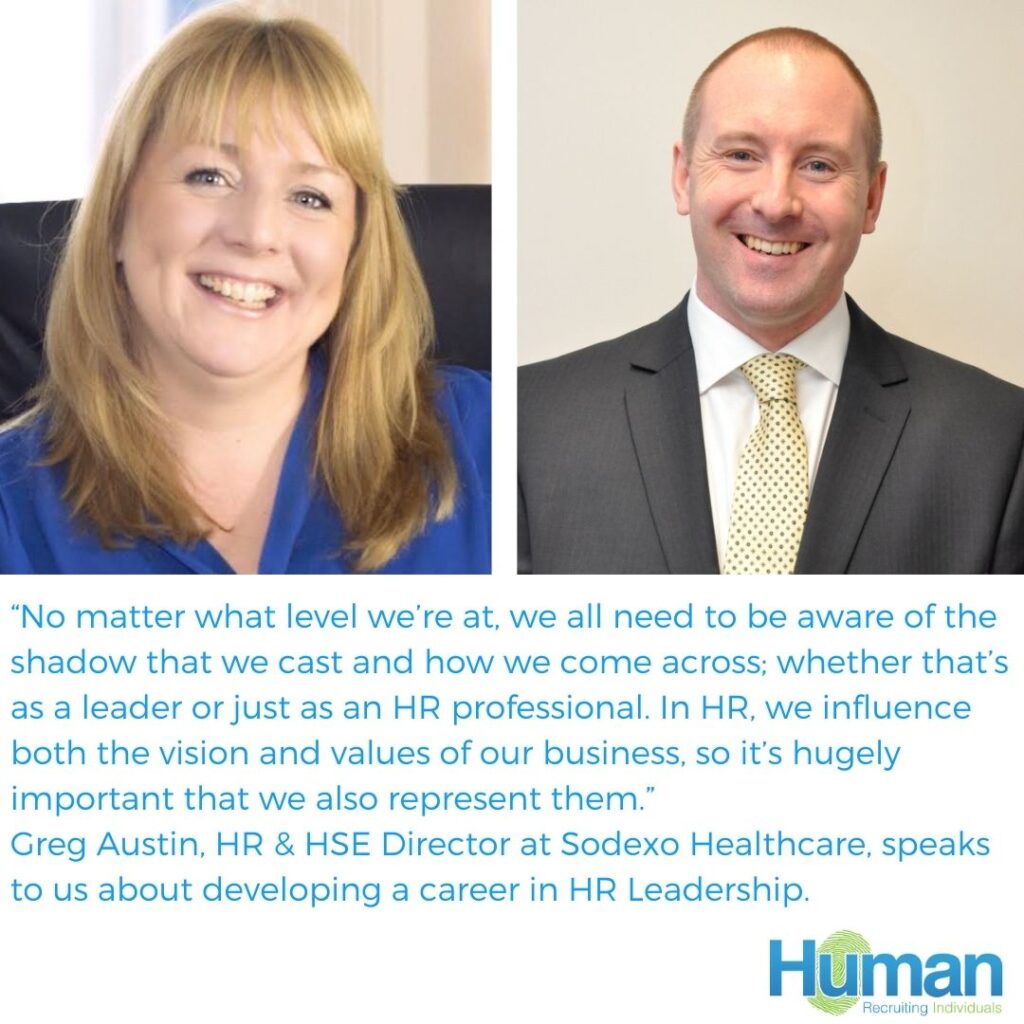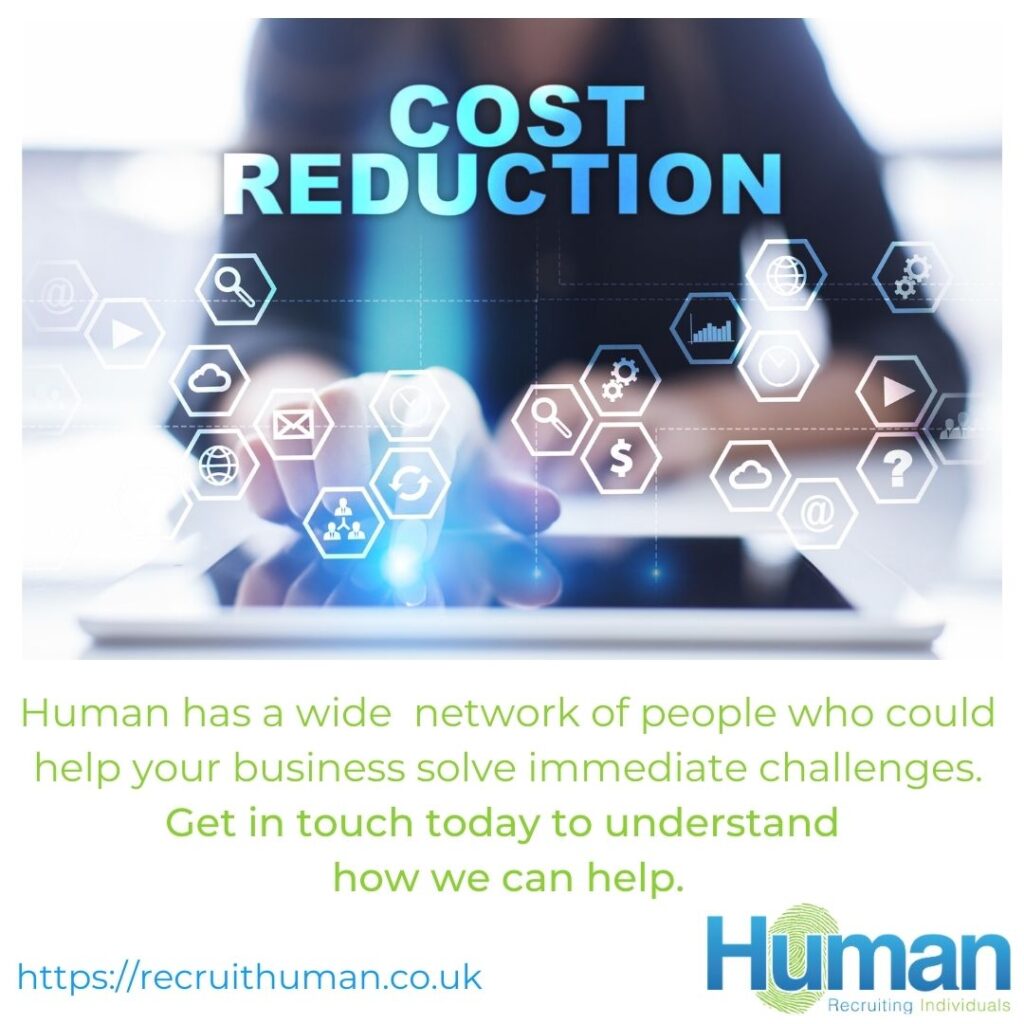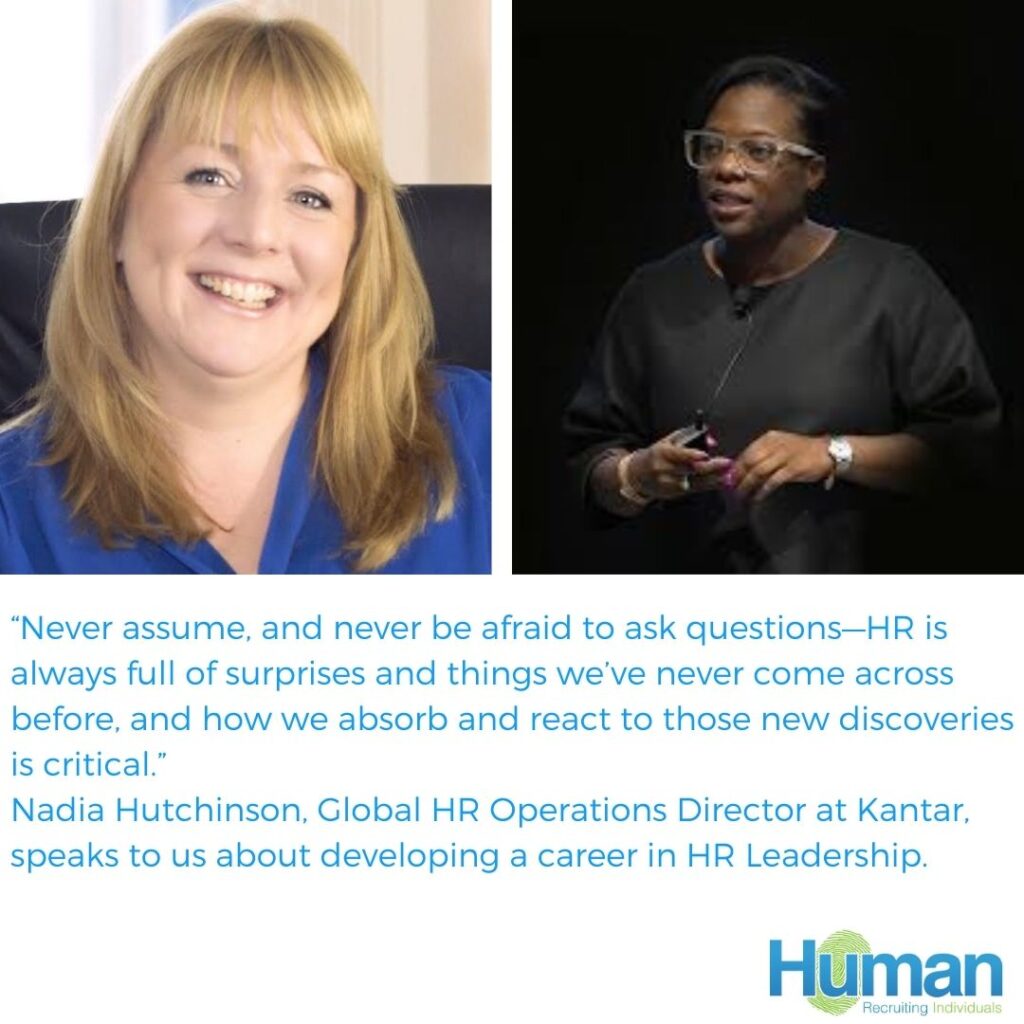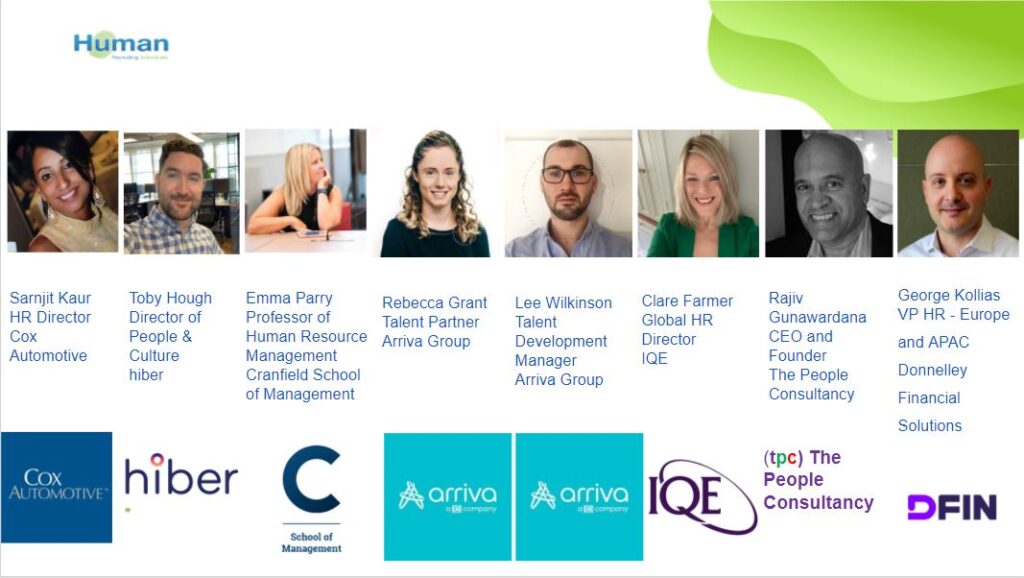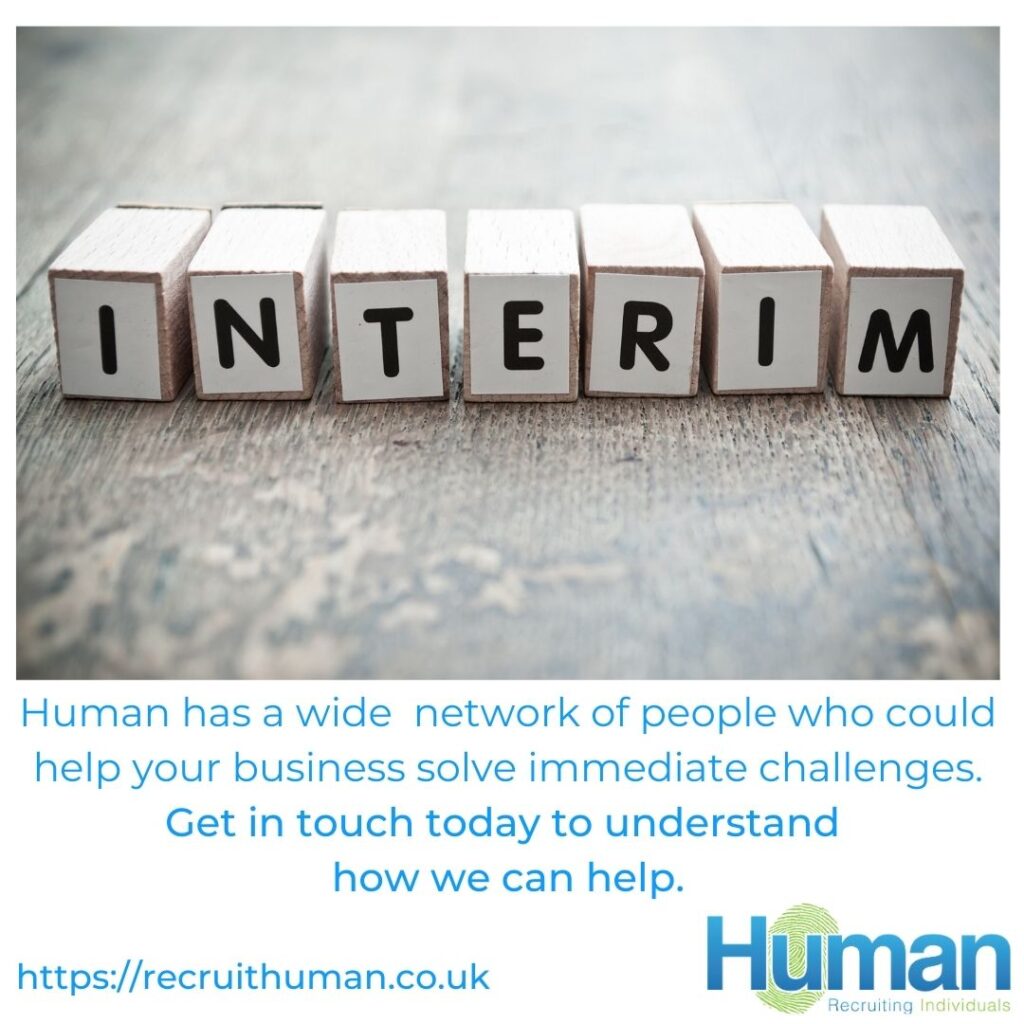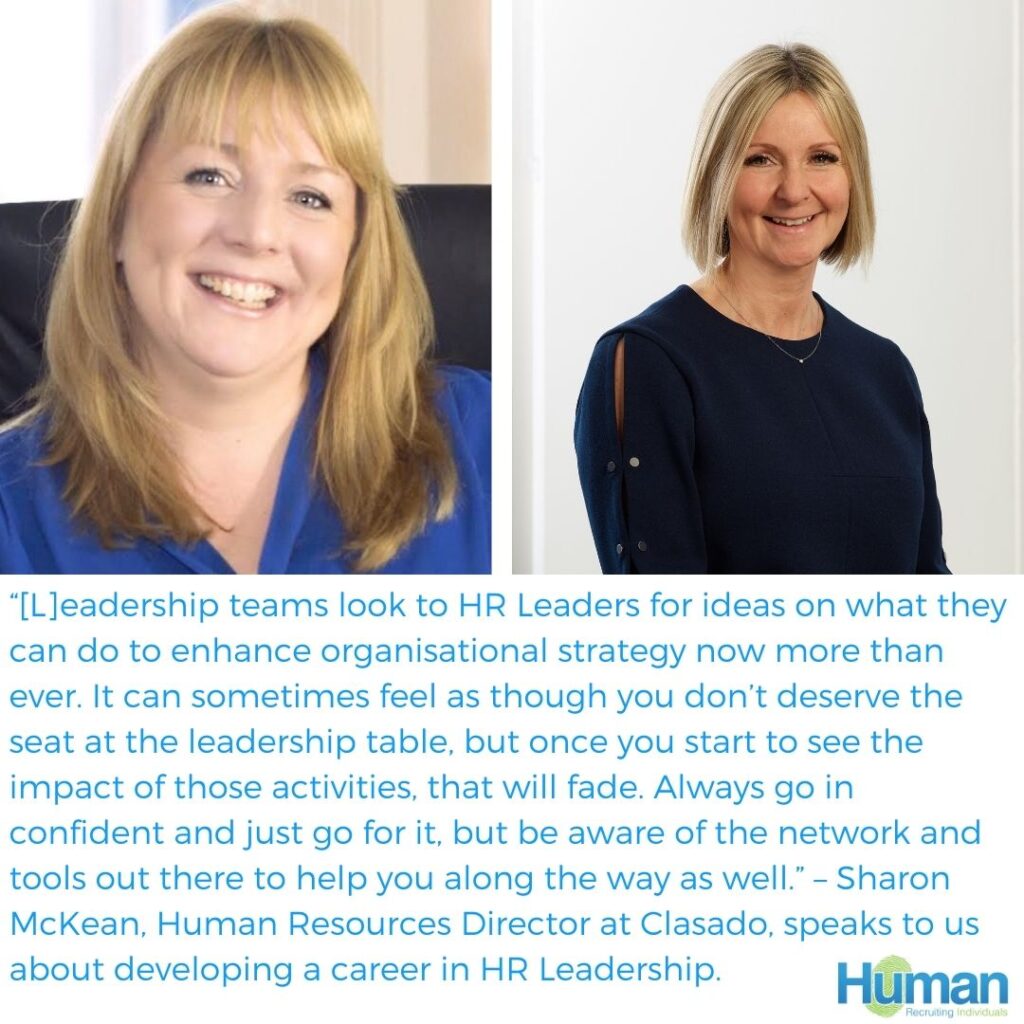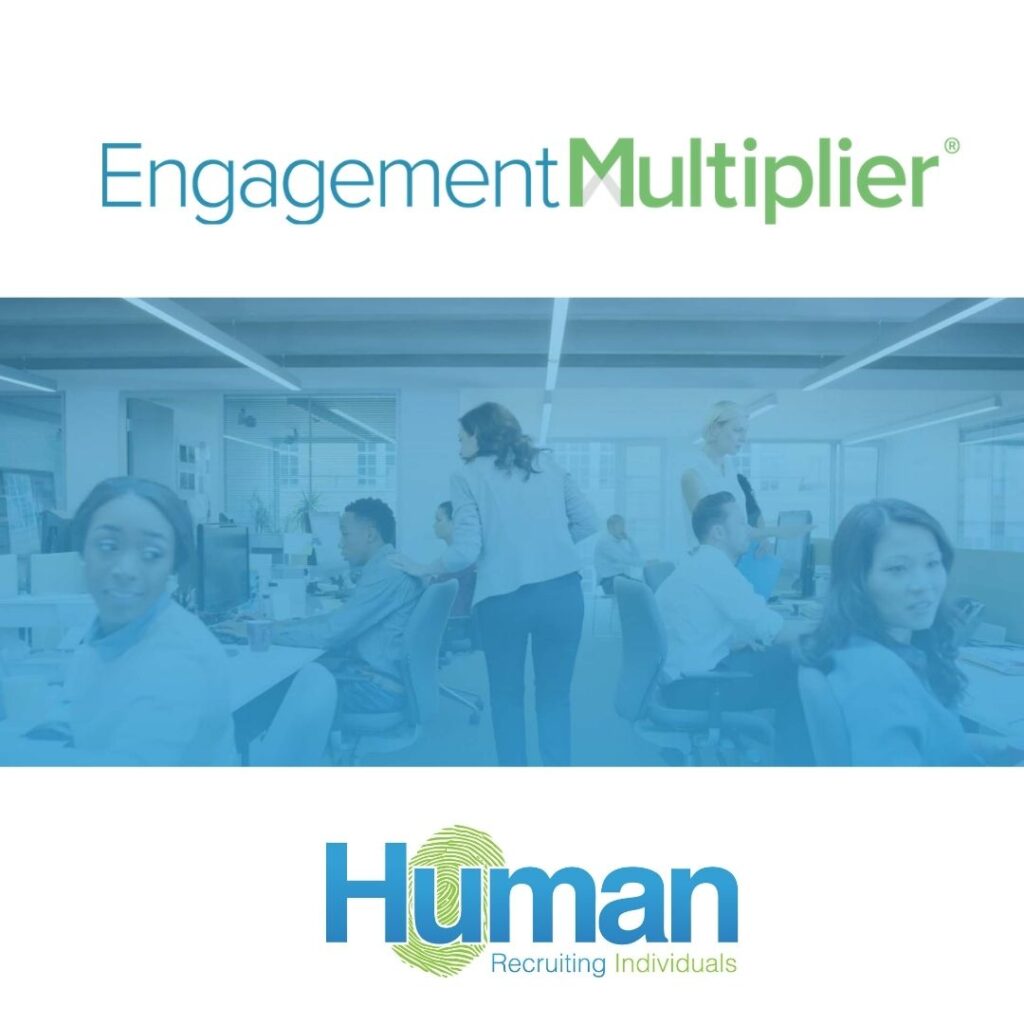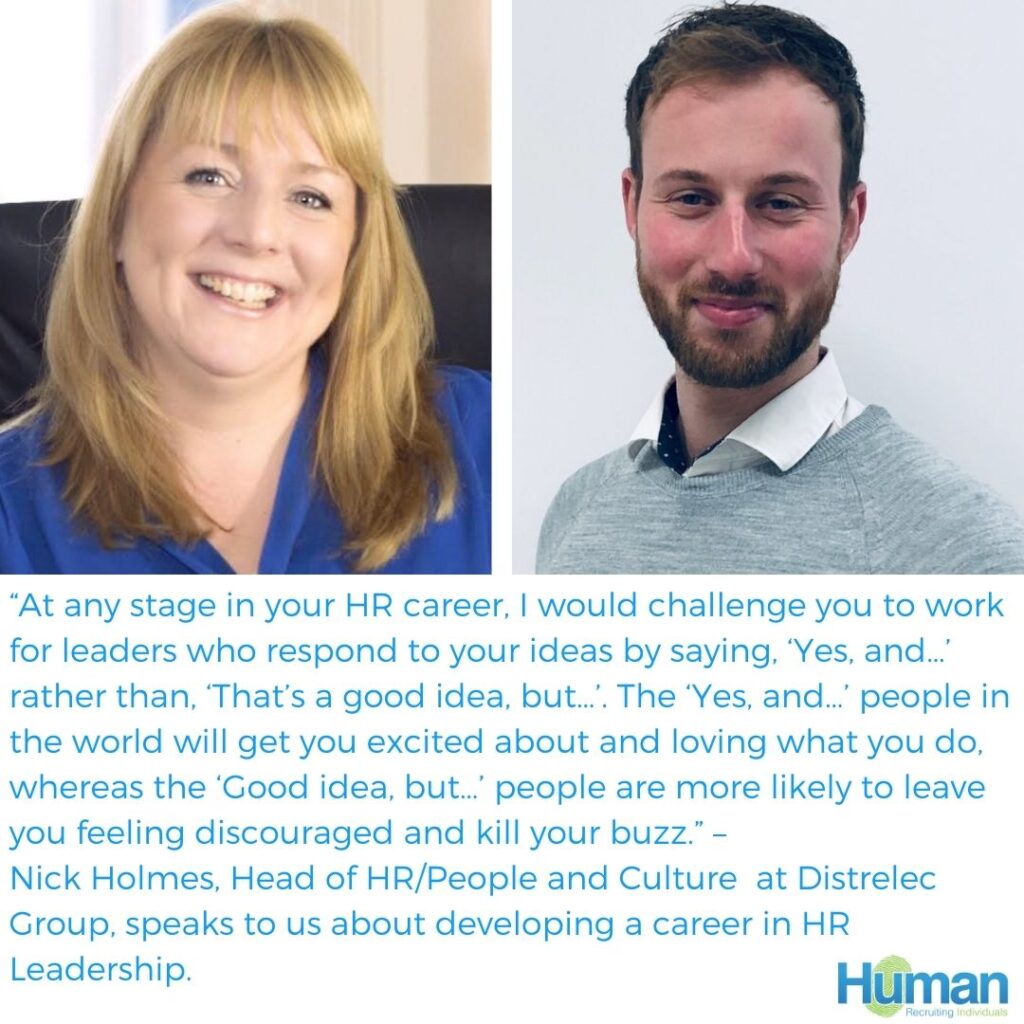“No matter what level we’re at, we all need to be aware of the shadow that we cast and how we come across; whether that’s as a leader or just as an HR professional. In HR, we influence both the vision and values of our business, so it’s hugely important that we also represent them.”– Greg Austin, HR & HSE Director at Sodexo Healthcare, speaks to us about developing a career in HR Leadership. As part of our commitment to supporting candidates to develop fulfilling careers, we’ve invited some HR Leaders to share the secrets of their success. This week, we had a great conversation with Greg Austin at Sodexo, who started his HR career within the UK Civil Service as an Executive Officer—and later Higher Executive Officer—at the Benefits Agency, before taking on roles within the HR functions of Anchor Housing and Boots. In 2000, Greg joined the team at Telewest Communications (now Virgin Media) as HR Manager, later taking on the HR Manager role at Allied Bakeries. In February 2006, Greg took on the role of HR Operations Manager at Northumbrian Water, later becoming HR Director for G4S Government & Outsourcing Services in August 2010 ahead of taking on his current role at Sodexo in October 2012. Can you tell us how you got into HR and why? My first job in HR was pure coincidence. After finishing my A-Levels, I started to look into career paths, and undertook my Civil Service exams as part of their direct entry Executive Officer recruitment scheme. I was offered a job in Newcastle with the Benefits Agency. When I arrived, I was placed in Personnel and given a desk, a team, the staff codebooks, and two days’ handover time, even though I had no knowledge of what Personnel was. It was a baptism of fire, but a great opportunity to learn the basics. Going straight into challenges like disciplinaries, grievances, and other employee relations activity proved to be a great grounding for my future HR career. I realised that I really enjoyed not only the influencing side, but the variety of challenges you could be faced with every time you picked up the phone. Over time, I took on more responsibility, setting up a satellite office for the Child Benefit Centre and stepping up to the role of Higher Executive Officer for a year in a secondment. When that came to an end, I realised there was no real scope to move up, so I began to look for my next opportunity. Shortly after that, I made the move to Anchor Housing—a not-for-profit charity with care and nursing homes across the UK. That was a really interesting role; not only did it feel like I was giving something back, but it continued my education in HR and allowed me to build on my ability to manage change and employee relations and get involved in projects. In that time, I also undertook a postgraduate diploma in HR in the evenings—I knew that I needed to have an HR qualification to back up my practical experience and allow me to progress. After a couple of years at Anchor, I took on a regional role with Boots, relocating to Carlisle and started a Master’s—again in the evenings—to give me a theoretical understanding to underpin my practical experience and broaden my thought processes. At Boots, I was a Duty Manager as well as in HR, and that gave me my first view of the commercial world, which was a real eye-opener. Although i enjoyed Boots, I eventually wanted to move back to Newcastle for family reasons, and ended up joining Telewest—as Virgin Media was at that time—as HR Manager. I thoroughly enjoyed working for them; it was vibrant, it was growing, and the job itself was always evolving and providing new challenges. I gained exposure to the various disciplines in HR as well as the business. I started off looking after Scotland and Newcastle, which then progressed into national roles looking after our call centres and Sales teams, and then the Technical division, handling areas such as reward principles, engagement, and growth and acquisition in all those areas. Growth and integration was where i came into my own—colleagues had joined and were continuing to join us from other organisations and bringing with them a union presence the business hadn’t really experienced before. Ensuring we struck a balance between keeping things vibrant and dynamic and accounting for the unionised element of our workforce in our engagement and work management systems was a challenge, but also a fascinating insight into the importance of being a trusted advisor to your business and influencing senior leaders in order to move things forward. Although I enjoyed how dynamic, fast-moving, and varied the work I was doing was, more responsibility meant I was living away from my young family four or five days a week, which wasn’t sustainable. After briefly taking on a role at Allied Bakeries, I moved to Northumbrian Water, which was another really varied organisation where I was fortunate to experience a whole range of technical and engineering-focused blue- and white-collar environments, all of which had a huge focus on people, excellent employee and customer relations, and a great culture and value system underlying them. I felt i made a difference in my role, and the people and environment were great, but after four years there, I knew that I needed a new challenge. I wanted to test and stretch myself by taking on an HR Director role. I pursued that at G4S, which was a very different environment, but fantastic for bringing me back to the commercial side of HR as part of the executive management team—influencing, coaching, and making decisions with not only our division’s Chief Executive, but also the regional business leaders and on occasion the Group Chief Executive. I gained some great insight into the leadership of a commercially-focused organisation, in particular in the outsourcing areas of bidding, tender management, client relationships


